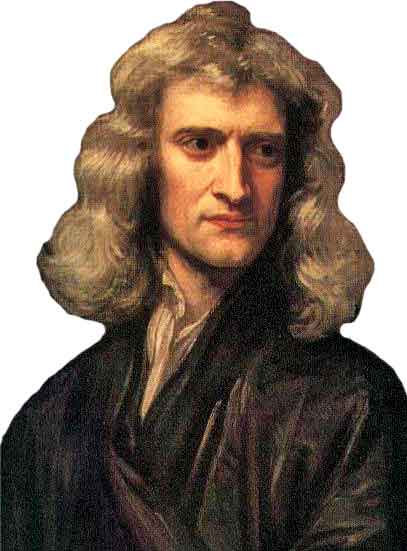 Isaac Newton is a big name in the field of science and mathematics who has developed many laws of physics, some of which are the law of gravitation and laws of motion. He also founded new branch mathematics, called calculus, which very important branch of mathematics in these days. Other than this, Newton worked on optics and built a new telescope that worked on reflection of light, instead of refraction.
Isaac Newton is a big name in the field of science and mathematics who has developed many laws of physics, some of which are the law of gravitation and laws of motion. He also founded new branch mathematics, called calculus, which very important branch of mathematics in these days. Other than this, Newton worked on optics and built a new telescope that worked on reflection of light, instead of refraction.
Early Life
Isaac Newton was born on 4th January of 1643 in England. He was the only child of his father that was a farmer and died before his birth. After the birth of Newton, her mother went to remarry with a person who was a minister. Due to remarriage, she left the Newton to his grandmother for further care. But at the age of 12, Newton’s mother came back because her second husband also died.
Newton got his early education from the king’s school while her mother was living with her second husband. But at the age of 12 when her mother came back, she pulled-out the Newton from the school so that he can become a farmer. Newton was not able to become a good farmer, so he was again sent back to the same school to get the education further.
In 1661, Isaac Newton successfully enrolled in a college at Cambridge for graduation. But after a few years, the Great Plague was spread throughout the Cambridge and Newton had to leave that area. He returned to his home at Woolsthorpe and remained isolated most of the time for study. During that time, Newton had developed several theories and laws, some of which are gravitation of Earth, laws of motion, and calculus.
Later on, Newton became a professor at Cambridge where he spent most of his time during the last years of his life. Due to his scientific contributions, Newton was also made the president of the Royal Society in 1703.
Scientific Discoveries and Contribution
Isaac Newton has contributed so much to science and mathematics that he was considered as the best scientists by Albert Einstein. Newton spent most of his time isolated from people for studying, some of his discoveries that he made are:
- Law of Gravitation – Many people agree that Newton started to think about gravity when an apple from the tree fell on his head. He started to think about falling of apple and worked-out on this phenomena and gave a law, called the law of universal gravitation. This law defined the attractive force of Earth and the motion of planets around the Sun.
- Three Laws of Motion – Newton developed three laws of motion which described the motion of objects. The most famous law is the 3rd law of motion, which states that every action has a reaction equal in the amount but opposite in the direction.
- Reflective Telescope

Newton’s reflecting telescope Before Newton, people and astronomers used telescopes that contained lenses made of glass to refract the light for focus. These refractive telescopes were actually developed by Galileo Galilei and had certain limitations. Newton designed a new kind of telescope, called reflective telescope, which used mirrors for focusing the light – instead of traditional glass lenses. Today, most of the ground-based telescopes used on the Earth are the reflective telescopes that work on the same principle of Newton. (Learn more about the invention of the telescope)
- Calculus – Newton was also a very famous mathematician who spent most his time solving mathematical expressions. He developed a new kind of math that could deal with “rates of change”. He called his newly developed math as fluxions that today we know as calculus. Calculus is very important to understand the dynamic systems that constantly change their state. For example, the motion of the planets, chemical reactions, and the motion of rockets.
Facts
- Newton was a premature baby when her mother gave birth to him. He was so weak that the chances of his survival were very low.
- Newton also spent his time doing chemical experiments from the time of alchemy (Arab chemists).
- Newton was a great scholar because he studied the work of scientists before him from times of Aristotle, Arab Muslim scientists, Galileo Galilei, and Copernicus.






